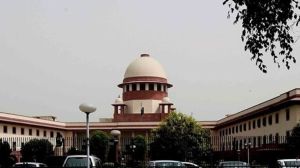Pilot for QR Code-based vending machine coming: RBI
The QCVM is a cashless coin dispensation machine which would dispense coins against a debit to the customer’s bank account using Unified Payments Interface (UPI). The QCVM would eliminate the need for physical tendering of banknotes and their authentication, the RBI said.
 Customers will also have the option to withdraw coins in required quantity and denominations in QCVMs, according to the RBI. The pilot project is planned to be initially rolled out at 19 locations in 12 cities across the country.
Customers will also have the option to withdraw coins in required quantity and denominations in QCVMs, according to the RBI. The pilot project is planned to be initially rolled out at 19 locations in 12 cities across the country. The Reserve Bank of India on Wednesday said it’s preparing a pilot project on QR Code based Coin Vending Machine (QCVM) in collaboration with a few leading banks. The QCVM is a cashless coin dispensation machine which would dispense coins against a debit to the customer’s bank account using Unified Payments Interface (UPI). The QCVM would eliminate the need for physical tendering of banknotes and their authentication, the RBI said.
Customers will also have the option to withdraw coins in required quantity and denominations in QCVMs, according to the RBI. The pilot project is planned to be initially rolled out at 19 locations in 12 cities across the country. These vending machines are intended to be installed at public places such as railway stations, shopping malls, marketplaces to enhance ease and accessibility, it said while unveiling the monetary policy.
Penal charges on loans
The RBI on Wednesday announced that any penalty for delay or default in servicing of the loan or any other non-compliance of material terms and conditions of loan contract by the borrower should be in the form of ‘penal charges’ in a reasonable and transparent manner. It should not be levied in the form of ‘penal interest’ that is added to the rate of interest being charged on the advances, the RBI said.
Further, there should be no capitalisation of penal charges (the same should be recovered separately and should not be added to the principal outstanding). However, in case of any deterioration in credit risk profile of the borrower, regulated entities will be free to alter the credit risk premium under extant guidelines on interest rate, the RBI said.
Insurance in TReDS
The RBI has decided to permit insurance facility in the Trade Receivables Discounting System (TReDS). This will encourage financing / discounting of payables of buyers irrespective of their credit ratings, it said. Accordingly, insurance companies will be permitted to participate as a “fourth participant” on TReDS, apart from the MSME sellers, buyers and financiers.
UPI for inbound travellers
The RBI has proposed to permit all inbound travellers to India also to access Unified Payment Interface (UPI) for their merchant payments (P2M) while they are in the country. To start with, this facility will be extended to travellers from the G-20 countries, arriving at select international airports. Going forward, this facility will be enabled across all other entry points in the country, it said.
Securities lending in G-secs
The RBI has decided to permit lending and borrowing of Government securities which will augment the existing market for ‘special repos’. The system is expected to facilitate wider participation in the securities lending market by providing investors an avenue to deploy idle securities and enhance portfolio returns.



- 01
- 02
- 03
- 04
- 05




























